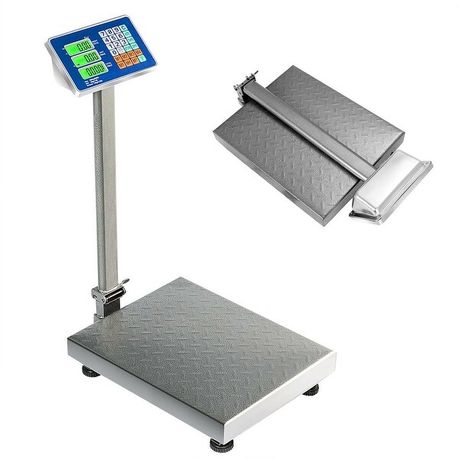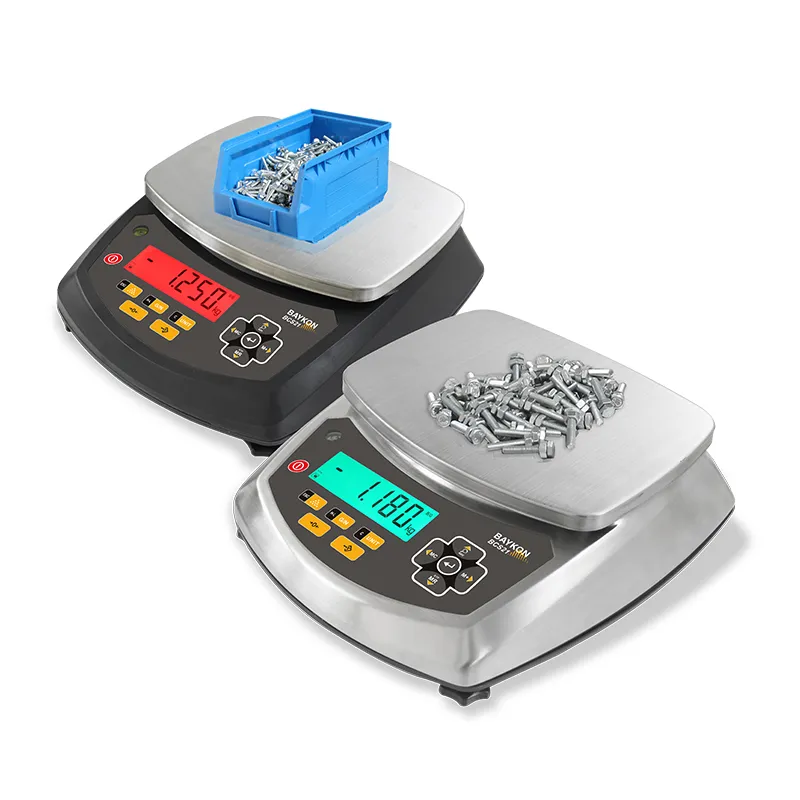Just How Industrial Scales Work: An Extensive Introduction for New Users
Understanding the technicians behind industrial scales is essential for brand-new customers that desire to guarantee accuracy in their dimensions. As we check out these parts, one need to take into consideration exactly how these aspects engage to enhance efficiency in varied commercial applications.
Basics of Industrial Scales
Industrial scales are necessary devices made use of across numerous fields, including manufacturing, logistics, and farming, to make certain precise weight measurements of hefty loads. The basic principle behind commercial scales involves the conversion of weight into a measurable kind that can be presented electronically or analogically. These scales use numerous systems, such as tons cells or mechanical bars, to determine the weight of things placed upon them.

In addition to their dimension abilities, commercial ranges are developed to stand up to rough atmospheres, including durable building that stands up to dust, wetness, and heavy effects. Calibration and upkeep are essential to make sure accuracy, as also small discrepancies can result in considerable financial implications. By recognizing the fundamentals of commercial ranges, users can appreciate their value in various commercial applications.
Kinds Of Industrial Scales
Different kinds of commercial ranges accommodate the varied requirements of various industries, each designed to take care of particular weighing jobs with precision and integrity. Amongst the most common kinds are floor ranges, which are suitable for evaluating cumbersome and heavy items. These scales generally feature big systems and can accommodate palletized items, making them essential in storage facilities and delivery facilities.
An additional kind is bench ranges, which are commonly used for smaller things in manufacturing and retail setups. They supply accurate dimensions for items that require precision, such as chemicals or components in setting up lines (Industrial Scales). For mobile procedures, mobile scales supply adaptability and simplicity of transport, ideal for fieldwork or short-lived installations
In applications requiring high-capacity dimensions, such as wholesale product handling, crane ranges and lots cells are used. These ranges can determine loads put on hold from a crane or various other lifting device, ensuring safety and security and precision during procedures. In addition, specialized scales like checkweighers are utilized in assembly line to preserve quality assurance by making certain that products meet weight specifications. Each type of commercial range plays an important duty in improving operational efficiency and precision throughout various industries.
How Weighing Devices Work
Considering mechanisms are necessary parts that make it possible for exact dimension of mass throughout various commercial scales. These devices use different concepts of physics and design to provide precise weight analyses, necessary for stock management, high quality control, and compliance with governing criteria.
One typical type of weighing mechanism is the load cell, which operates the concept of stress evaluates. When a load is applied, the load cell warps slightly, generating an electrical signal proportional from this source to the weight. This signal is then transformed into a legible weight measurement by the range's electronic devices.
One more widely used device is the mechanical balance, which uses a system of levers and weights. Industrial Scales. This method counts on the principle of equilibrium, where the weight of the item being determined is balanced against known weights, permitting straight measurement
In addition, pneumatically-driven and hydraulic ranges utilize fluid characteristics principles to gauge weight. These systems make use of the pressure put in by a tons to identify weight, using high accuracy for substantial loads.
Appropriate Use Methods
When using commercial scales, sticking to correct usage strategies is essential for ensuring accurate measurements and keeping tools integrity. It is essential to select the appropriate scale for your particular application, as scales vary in ability and precision.
Before weighing, make sure that the scale is positioned on a secure, degree surface without vibrations or disturbances. This will aid to decrease errors caused by outside factors. Furthermore, adjust the scale according to the producer's specifications prior to utilize, ensuring that it is working properly.
When placing products on the range, disperse the weight equally to stay clear of tipping or harming the tools. Always permit the scale to support before tape-recording the weight, as variations might occur during first placement. For bulk products, make use of containers that are suitable for the scale dimension to avoid overloading.
Moreover, avoid putting excessively hot or chilly things directly on the range, as temperature variations can impact precision. Finally, maintain the considering system clean and complimentary of particles to prevent contamination and make sure reputable outcomes. By following these techniques, customers can take full advantage of the efficiency and longevity of their commercial scales.
Upkeep and Calibration Tips
Making certain the long life and precision of industrial ranges needs attentive upkeep and routine calibration. A preventative upkeep routine is vital; it should consist of regular examinations to identify damage, specifically on lots cells and other sensitive components. Consistently cleaning up the scale's surface area and making certain the bordering location is devoid of debris will assist maintain its stability and efficiency.
Calibration is just as essential and need to be carried out at normal intervals or whenever the range experiences considerable changes in temperature level, humidity, or physical displacement. Utilize certified calibration weights that are deducible to national requirements for accuracy. Document each calibration session carefully to track efficiency in time and determine any type of trends or repeating concerns.
In addition, be conscious of the range's atmosphere. Avoid putting it near resources of vibration, electromagnetic disturbance, or extreme temperature levels, as these elements can adversely affect measurements. Train all drivers on correct range use and upkeep protocols to ensure regular efficiency and precision. By site link sticking to these upkeep and calibration suggestions, individuals can boost the reliability of their commercial ranges, ensuring optimum procedure in any type of setting.
Conclusion

Comprehending the mechanics behind commercial scales is crucial for new individuals who want to make sure accuracy in their dimensions.Industrial ranges are essential tools made use of across different fields, consisting of production, logistics, and farming, to make certain accurate weight dimensions of heavy tons. The fundamental concept behind industrial ranges involves the conversion of weight right into a measurable kind that can be presented electronically or analogically. By comprehending the essentials of industrial scales, customers can value their relevance in various commercial applications.
In verdict, understanding the operation and upkeep of check this industrial scales is essential for making sure accurate weight measurements in different applications. (Industrial Scales)
 Spencer Elden Then & Now!
Spencer Elden Then & Now! Kirk Cameron Then & Now!
Kirk Cameron Then & Now! Charlie Korsmo Then & Now!
Charlie Korsmo Then & Now! Julia Stiles Then & Now!
Julia Stiles Then & Now! Mike Smith Then & Now!
Mike Smith Then & Now!